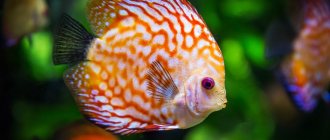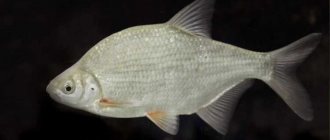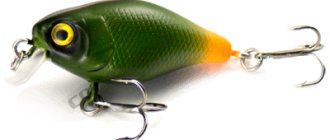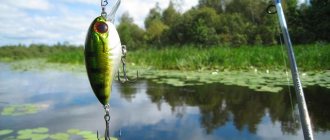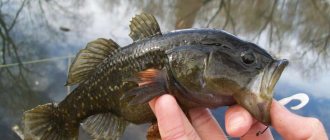Human sleep and fish sleep
All living things on the planet have certain similarities, for example: when a person, animals or birds want to sleep, they take a lying position, relax and close their eyes, but looking at aquarium pets, it seems that they are always awake, and watch the events taking place around the clock, with open eyes .
However, this is a misconception; aquatic inhabitants swim and do not lower their eyelids due to their absence; this is an anatomical feature of most aquarium fish. In fact, fish also have phases of active wakefulness and sleep. People, animals, and birds use their eyelids to protect their eyes from drying out, but this is not possible for waterfowl pets, because they are constantly in the water, and the aquarium liquid cleanses and moisturizes their eyes well.
How do fish sleep?
~ Rybka ~
Don't be fooled by the fact that fish's eyes are always open: these living creatures also like to get a good night's sleep and even take a nap in the morning. Can fish sleep? For a long time, scientists puzzled over this question, but the results of a recent study showed that after a restless night, fish like to take a nap. Now researchers have been able to prove not only the fact that fish sleep, but also that these living creatures can suffer from insomnia and also have difficulty with being forced to stay awake. The fish were observed by a group of scientists from the USA and France. It was discovered that when fish fall asleep, their tail fins bend down, and the fish themselves stay either on the surface of the water or at the bottom of the aquarium. When fish are sleeping, they swim much slower. However, their brain biorhythms do not change. They do not have eyelids, so they have nothing to cover their eyes, but during sleep, fish are much less able to distinguish the objects around them. Some fish stop moving when they fall asleep. But others can't afford to stop moving. Tunas, for example, must keep moving because in order to obtain oxygen, water must be constantly passing through the gills. Some fish find secluded corners between rocks or in corals to rest; others actually build a nest for themselves to sleep in. And the parrotfish, when it is about to rest, releases a jelly-like substance that surrounds its body, forming some semblance of protection while it sleeps. Sleeping fish in the water often take strange poses - they bend their heads towards the bottom or seem to fall slightly on their side. https://m-vopros.ru/animals/22/345/ https://www.374.ru/index.php?x=2007-10-17-51
How to tell if a fish is sleeping
To understand whether a fish is sleeping, you need to look at its behavior. If it is in an immobilized state, hiding in algae or hanging in the water column, barely moving its fins, this means that the aquarium pet is in the metabolic stage. There are also some aquatic inhabitants who prefer to sleep on their sides, at the bottom of the aquarium.
Aquarium inhabitants, like all living things on earth, prefer to sleep at night. If you suddenly enter a dark room and turn on the light, you will notice how the fish perk up, begin active swimming, and wake up. And that is why for fish living in aquariums you need to turn off the lights at night. But certain species of aquatic inhabitants are not accustomed to this way of life. Predatory fish - catfish - will not refuse to sleep during the daytime.
It is worth noting that the physiological characteristics of fish differ from human ones. During fish sleep, the aquarium inhabitant does not relax, but is in full consciousness, reducing its functionality. Therefore, when a person throws food into the aquarium, there is a danger to life, the fish suddenly becomes more active, resumes vital activity and lives its usual life.
For aquatic inhabitants, sleep does not represent a complete disconnection from reality, but only slows down physical activity. However, such sleep allows the fish to restore the functionality of the body and nervous system.
Do fish sleep?
Looking at their swimming pets, aquarists doubt whether the fish sleep in the aquarium, because it seems that they are always cheerful and active. In fact, all inhabitants of the planet that have a developed nervous system need rest, and fish are no exception.
All fish species have a sleep and wakefulness pattern. However, fish sleep is different from human sleep. Living in an open aquatic environment left its mark on the evolution of fish sleep. Since in nature fish are forced to constantly be on alert in order to notice a predator or grab food in time, they do not completely switch off, but only doze. When a fish sleeps, its brain does not go into deep sleep, but continues to work. And in order for the brain cells to rest and recover, the hemispheres work alternately.
Whether fish in an aquarium sleep at night or stay awake in the dark depends on the species. Some species are active during the day, while others prefer to stay awake at night. Thus, aquarium catfish are active at night, and during daylight hours they can be found in a shaded shelter.
It is known that dolphins are aquatic mammals. However, their brain, like that of fish, is capable of switching off the hemispheres alternately. First, one hemisphere rests for about six hours, then the other for the same amount of time. Therefore, dolphins are always on the alert, noticing predators in time.
Since sleeping fish experience stress when they are disturbed, it is necessary to create optimal conditions in the aquarium for pets to rest:
- Construct shaded shelters;
- Place species with similar sleep patterns in the same aquarium;
- Do not turn on the aquarium light when your pets are sleeping.
Classification of fish by sleep
Aquarists conducted a thorough analysis of the behavior of the fish and divided them into 2 categories:
- crepusculars are fish that see well at night, so they try to hunt in the dark and rest during the day, this is due to the anatomical structure of the eyeball. Most predators fall into this category;
- light-loving - have a special eye structure that allows them to see well in daylight. Based on this, fish rest at night and are actively awake during the day.
You should not allow crepuscular and light-loving fish together in the same aquarium because:
- their characters are incompatible, predators will begin to feed on decorative, kind fish;
- twilight fish are uncomfortable being in the company of fish that love a lot of lighting.
Fishing at night?
Like humans, fish can sleep as long as their tank lights are on, although they find it much preferable to sleep in the dark.
Forcing your fish into 24 hours of light will cause stress and make it difficult for them to achieve the restorative sleep they need.
Not to mention the other negative impact on your aquarium of leaving the lights on all the time. Therefore, you should make sure that when you go to bed, you turn off your aquarium lighting system.
Alternatively, you can purchase equipment that controls your lights on timer switches, meaning you can set the cycle and not have to worry about it again.
Like many land animals, there are species of fish that are nocturnal, meaning that they sleep during the day instead. When you first stock your tank with fish, be sure to learn about these specific species so you know what is considered normal for your fish.
Winter and summer hibernation
Some fish are able to hibernate in winter. Naturally, this is a little different from what we are used to understanding, and is expressed by inaction, decreased physical functions, and decreased metabolism. Also during this period, you can see how aquarium pets froze in the water column or lay down on the bottom.
Summer hibernation is very important for fish. Thanks to it, they are able to easily tolerate heat and survive in high temperatures or drought.
African residents have discovered an amazing fish that can form a “mud cocoon” and hide in it for several months. Aquarium pets rarely use this function, but when they find themselves in an uncomfortable environment, they easily adapt to it using “summer hibernation.”
What does a fish look like in a dream?
You can tell that a fish is in a state of sleep by its changed behavior and decreased physical activity. Often she makes no movements, only slowly wiggles her tail. Her eyes are constantly open - both during sleep and while awake.
Why doesn't he close his eyes?
Fish have no eyelids, so their eyes never close.
The structure of the visual organs of the inhabitants of the depths does not provide for the presence of eyelids and lacrimal glands. Water constantly cleanses and moisturizes the surface of the eyes. When in an aquatic environment, fish do not need to clean the surface of their eyes in any other way.
The field of view is quite wide. They see well from all sides. The eyeballs are on both sides. Each eye captures the image from its own side. In front, the fish can focus on 1 object with both eyes.
The eye has an iris. The pupil of most fish cannot regulate the light flow. If exposed to strong light, they can go blind. Plant shades and secluded corners protect from light.
Do fish sleep the same?
There are several types of fish: bony and cartilaginous.
The bulk of aquarium inhabitants are bony, they are able to hang in the water and hibernate. This is due to the presence of a swim bladder, which is filled with air. Therefore, the more oxygen it contains, the higher the fish can hang. Cartilaginous fish are rarely found in aquariums, but they do exist, these are loaches and ancistrus. They do not have a swim bladder, so they sleep on the bottom, like sharks or stingrays.
There are also fish that sleep quite unusually, take, for example, the parrot fish. These creatures love to sleep “under the covers”; for this they release mucus through the oral cavity and become enveloped in it. This protects them and protects them from stressful situations, and when they wake up, the fish leaves its secluded “blanket”. Besides these aquatic inhabitants, there are others who sleep in equally unusual ways, for example, hiding in a cave or an established castle.
Features of fish sleep
The concept of sleep is interpreted as the physical state of the body when its reactions to the environment are reduced and brain activity is almost minimal. This is how all people sleep, but fish sleep differently because their biological functions are not the same as other creatures.
Features of fish sleep:
- the environment and the specifics of the body structure do not allow fish to completely disconnect from reality;
- fish do not close their eyes due to the lack of eyelids;
- they do not fall into an unconscious state, therefore they partially perceive the actions of others and temperature changes;
- Brain activity remains the same as before sleep.
All these factors mean that the fish do not fall into deep sleep, but seem to be dozing. The sleep time of a particular individual depends on its species. Fish that are energetic during daylight hours sleep at night, and vice versa. For example, catfish are nocturnal inhabitants, and during the day they try to hide in places with dim light, and with the onset of darkness they go out in search of food.
Interesting fact: despite the fact that the dolphin is a mammal, like fish, it lives in water and never sleeps. The hemispheres of his brain go to sleep one by one, for 6 hours each. This feature allows dolphins to escape from insidious predators.
Why do you need to know the sleep patterns of fish?
People need to know this information for various reasons: just interesting, to tell their children, or to create a comfortable environment for their pets. Pisces, like people, cannot live without sleep, this can affect their health and cause insomnia and illness.
To protect them, do the following:
- it is necessary to turn off the lights in the room at night;
- before buying fish, you need to study their anatomical features, sleep patterns, what conditions they like, and purchase pets with approximately the same interests, including rest time;
- If an aquarist keeps fish that sleep during the day, it is worth planting it with thick algae, because there they can hide and rest.
Despite the anatomical features of fish, they also sleep, but their sleep is different from human sleep. Fish cannot dream and reduce brain activity, but only reduce physical activity for a short period of time, but if an aquarium inhabitant finds himself in an uncomfortable situation, then he hibernates for an indefinite period.
Watch how a goldfish sleeps:
Is sleep really about sleeping?
You would be wrong to think that your fish are awake considering they don't go to bed.
In fact, the last thing you want is to find a bunch of your aquarium creatures lying on their sides at the top of your aquarium, which could mean something much more serious than just sleeping.
The truth is that Pisces need to sleep just like humans do, although the main difference is how they present themselves when they sleep.
This is not always the same for different species.
Therefore, fish that sleep look peculiar.
For example, the Black Sea fish Zelenushka sleeps lying on its side under stones in crevices. And when the current carries the fish out from under the stone, it, lying on its side, creates the appearance of a dead fish, but if you swim closer to the greenfinch and touch it with your finger, it comes to life and instantly disappears under a nearby stone. Sleeping fish are often seen by scuba divers who dive at night.
Here are the words of one of them: “We once observed a very funny picture - at the bottom, pressed against the wall of an old tin can, the Greenfish fish was sleeping.”
The needle fish sleeps unusually - it hangs head down, trying to look as much like algae as possible. Schooling fish stop actively swimming at night, so the current carries them long distances from each other. In the mornings they begin to look for their relatives and gather in a school. When they are carried to the surf line, they wake up and swim some distance, then fall asleep again.
Sharks, the formidable predators of the deep sea, have it the hardest. Unlike other fish, they do not know how to forcefully breathe, so they move even in their sleep.
But not all fish sleep at night. Night is the best time for hunting for many species of fish and predators. In the Black Sea, such nocturnal hunters are the sea urchin and sea burbot.
What does a fish look like in a dream?
Fish, unlike people and many animals, do not close their eyes during sleep. This happens because they lack eyelids. They are not necessary, since water washes and moisturizes the eyes, and also cleanses their surface. The absence of eyelids is not a hindrance for fish. Those individuals that sleep at night do not suffer from excess light, since it is already dark at night. Underwater inhabitants who rest during the day hide in shaded corners.
How does a fish sleep? Each species sleeps differently. Some lie on the water, and its current washes the gills. Another species sleeps by clinging to leaves and branches of plants. There are fish that lay on their sides or bellies on the bottom. Aquarium owners most often observe a picture when their pets, in a sleeping state, drift near the bottom. At the same time, they make almost no movements or slightly sway their tail. With every, even the most minimal impact of any external factor, the fish instantly revive, returning to a waking state.
How do fish that belong to the bony class sleep?
Fish from the bone class rest in calm and quiet places. They can stay in various interesting positions during sleep. For example:
- the cod is placed sideways or belly-first on the bottom;
- the herring hangs belly up or head down in the water;
- The flounder, preparing to rest, buries itself in the sand.
Before slowing down their activity, fish not only choose a resting position
, but also try to take care of their safety. For example, the parrotfish, which lives in the tropics, surrounds itself with a cloud of mucus so that the predator cannot smell it.


